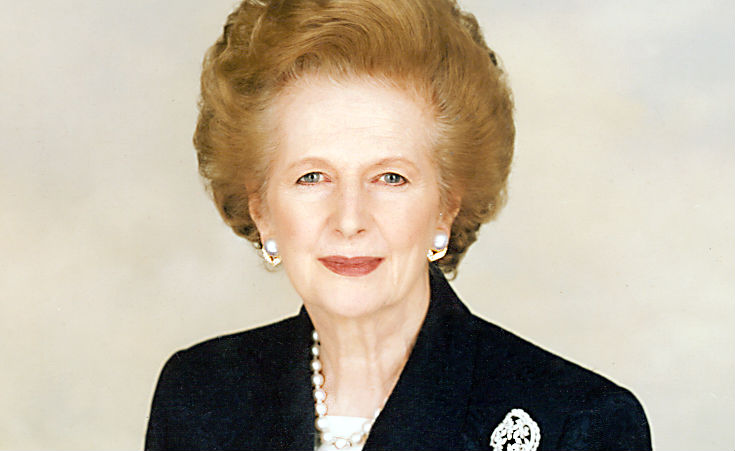Margaret Thatcher (1925-2013)
Margaret Thatcher was a British politician who served as the Prime Minister of the United Kingdom from 1979 to 1990. She was the first woman to hold this position and remains a controversial figure to this day. In this article, we will explore her life and career, her impact on Britain and the world, and the legacy she left behind.
Early Life and Education
Margaret Thatcher was born on October 13, 1925, in Grantham, a small town in Lincolnshire, England. Her father, Alfred Roberts, was a local grocer and a Methodist preacher, while her mother, Beatrice Ethel, was a homemaker. Margaret had a younger sister, Muriel, with whom she was very close.
From an early age, Margaret was a bright and ambitious student. She attended Kesteven and Grantham Girls’ School, where she excelled academically and became involved in various extracurricular activities. She was particularly interested in chemistry and mathematics, and her teachers encouraged her to pursue a career in science. However, Margaret had other plans.
Early Political Career
Margaret’s interest in politics began at a young age. Her father was a member of the local council, and she often accompanied him to meetings. She was also a member of the Young Conservatives, a youth organization affiliated with the Conservative Party.
After graduating from Oxford University in 1947 with a degree in chemistry, Margaret briefly worked as a research chemist before deciding to pursue a career in law. She became a barrister in 1953 and specialized in tax law. In 1959, she was elected to the House of Commons as the Member of Parliament for Finchley, a constituency in north London.
Prime Minister
In 1979, Margaret Thatcher became the first woman to be elected Prime Minister of the United Kingdom. She was a divisive figure from the start, with many people admiring her strong leadership style and others criticizing her policies and methods.
During her time in office, Margaret implemented a series of controversial policies, including privatizing state-owned industries, cutting social welfare spending, and reducing the power of trade unions. Her economic policies, commonly known as Thatcherism, are credited with reviving the British economy but also blamed for exacerbating inequality and social unrest.
Margaret’s foreign policy was equally contentious. She was a staunch ally of the United States and played a key role in the Cold War, but she also drew criticism for her handling of the Falklands War and her relationship with apartheid-era South Africa.
Legacy
Margaret Thatcher’s legacy is complex and contested. Supporters credit her with transforming Britain into a modern, dynamic economy and restoring the country’s international influence. Critics argue that her policies caused widespread hardship and inequality and damaged the fabric of British society.
Despite the controversy surrounding her policies, Margaret Thatcher remains a trailblazer and an inspiration to many people, especially women. Her rise to power as a woman in a male-dominated field broke down barriers and paved the way for future generations of female leaders.
Conclusion
In conclusion, Margaret Thatcher was a formidable politician who left an indelible mark on British and world history. Her impact on the economy, society, and international relations is still being debated and analyzed today. Love her or hate her, there is no denying that Margaret Thatcher was a force to be reckoned with.
FAQs
Who was Margaret Thatcher?
Margaret Thatcher was a British politician who served as the Prime Minister of the United Kingdom from 1979 to 1990. She was the first woman to hold this position.
What were Margaret Thatcher’s policies?
Margaret Thatcher implemented a series of controversial policies, including privatizing state-owned industries, cutting social welfare spending, and reducing the power of trade unions. Her economic policies, commonly known as Thatcherism, are credited with reviving the British economy but also blamed for exacerbating inequality and social unrest.
What was Margaret Thatcher’s legacy?
Margaret Thatcher’s legacy is complex and contested. Supporters credit her with transforming Britain into a modern, dynamic economy and restoring the country’s international influence. Critics argue that her policies caused widespread hardship and inequality and damaged the fabric of British society.
What was Margaret Thatcher’s impact on women?
Margaret Thatcher’s rise to power as a woman in a male-dominated field broke down barriers and paved the way for future generations of female leaders. She remains an inspiration to many women today.
What is Thatcherism?
Thatcherism refers to the economic and political policies implemented by Margaret Thatcher during her time as Prime Minister. These policies included privatization, deregulation, and reducing the power of trade unions.
